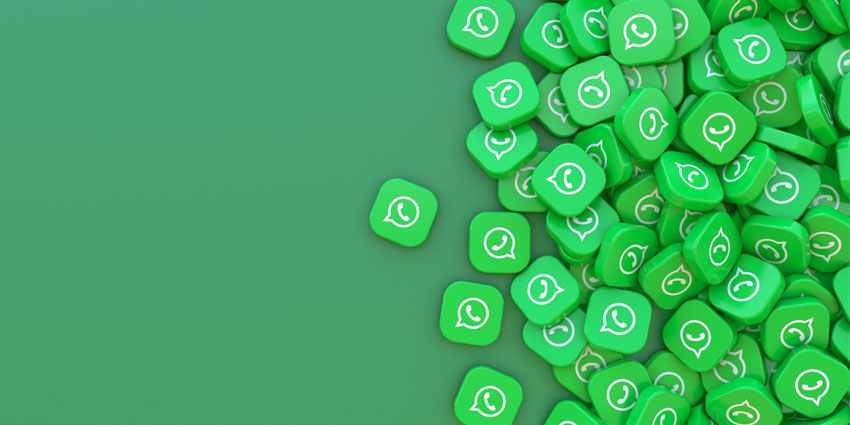Meta has finally done what the founders of WhatsApp vowed never to do: integrate ads into the messaging service.
After years of speculation, the company announced this week that it is rolling out ads within WhatsApp’s status feature—a stories-like format housed in the updates tab, used by over 1.5 billion people daily.
And for IT leaders, especially those overseeing digital communications and data governance, this marks a critical moment.
Meta has assured users that these ads, targeted based on limited metadata like location, language, and interaction patterns, won’t show up in private chats.
However, for enterprises quietly relying on WhatsApp as a primary communication channel, this signals a long-anticipated pivot that warrants an immediate review.
What’s Changing and What Isn’t
- No ads in chats: Ads will stay confined to the Updates tab for now.
- Metadata-based targeting: WhatsApp won’t use message content but will mine device and usage signals.
- Optional cross-platform tracking: Users can link WhatsApp with Instagram and Facebook for more tailored ad experiences, but it’s opt-in.
Further reading:
- When Free Isn’t Free: The Hidden Dangers of WhatsApp in the Workplace
- Is WhatsApp Quietly The Most Popular Enterprise Comms Platform?
A Consumer Tool Turned Enterprise Crutch
Despite its consumer roots, WhatsApp has become the de facto communications platform for many small and midsize businesses (SMBs).
According to a September 2024 study by Vodafone, it was ranked as the most popular messaging app in enterprise environments globally with 47 percent of the vote (Microsoft Teams came in second place, though way down the list at 22 percent).
Its appeal? Ubiquity, simplicity, and zero licensing cost – but for some in the UC field, the pivot towards advertising is a worrying concern.
“WhatsApp introducing ads isn’t surprising, it was only a matter of time – when a tool is free, it is never truly free,” Wildix’s CEO Steve Osler told UC Today.
“I have always believed, if you’re not paying for the product, you are the product [and] in business, that means your conversations, your data, your customer relationships, everything, becomes part of someone else’s monetisation model.
“Imagine you’re talking to a client and mid-conversation, they get served an ad from a competitor. It’s a real risk, and it’s already happening.
“At that point, WhatsApp stops being a communication tool. It becomes a marketplace. And in a marketplace, someone is always buying attention, maybe even the attention you thought you had.
“For a small team just starting out, maybe that’s a risk you’re willing to take. But once you grow, when trust and data and your brand matter more, you can’t afford to pretend a consumer app is a business tool.
And it’s not just about the ads – the real risk is the illusion of control. Once you hand that over, you’ve already lost more than you realise.”
How Meta Has Prepared For a Potential Backlash
Meta’s introduction of ads may remind some of the privacy concerns raised when WhatsApp proposed changes to its terms of service in 2021.
At the time, some users interpreted the move as a push towards more data sharing, which prompted a huge backlash against the service.
This time, the company seems more braced for any pushback, emphasising that sharing data with other Meta-owned ad targeting apps was optional.
It also suggests that the changes being made will help users, as evidenced by a blog post from the company earlier this week.
“The Updates tab is where you discover something new on WhatsApp – whether that’s a friend’s status from their wedding day or a creator’s entertaining channel – and it’s now used by 1.5 billion people per day globally”, the blog said.
“Now the Updates tab is going to be able to help Channel admins, organisations, and businesses build and grow.”
Posting on LinkedIn, Nikila Srinivasan, VP, Product Management at Meta similarly framed the changes as a win for users, saying “As both an avid WhatsApp user, and the head of business messaging, I’ve seen how people prefer messaging with businesses because it’s way more convenient and familiar than any other channel.
And I think we’re really helping improve communication for both sides. We have long wanted to give people a way to discover new businesses right within WhatsApp to easily start these conversations.”
What’s the Bottom Line for IT Leaders?
While there are concerns about what the future may hold, Meta has firmly said that in-app conversations are off-limits to ads, and privacy is of the utmost importance.
But that does not mean IT leaders should sit back and see what happens.
Review WhatsApp use across your organisation: Is it shadow IT or an unofficial tool used for convenience? Either way, it now comes with potential new issues.
Audit privacy policies and ad preferences: Especially if you’re linking Meta accounts across platforms (e.g., Facebook or Instagram).
Evaluate enterprise-grade mobile UC alternatives: Especially for frontline teams, retail, or high-compliance sectors.
Educate users on the implications: Ads may start in “Updates,” but history shows that monetisation can expand over time.







